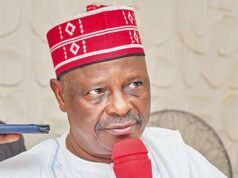The rising tide of inflation is putting Nigeria’s education sector at risk, says Abimbola Ajayi, Director of Yewande Memorial School (YMS). Ajayi, who has spent more than six decades shaping children’s learning, warns that the combined pressures of inflation, weak policies, and economic instability are forcing schools into survival mode and leaving parents struggling to keep up.
Table of Contents

A School’s Journey and the Cost of Excellence
Founded in 1960, Yewande Memorial School was born at a time when quality education was a dream for many Nigerian families. Over the years, it has built a reputation for discipline, sound academics, and moral formation, blending Nigerian and British curricula with a focus on character.
For Ajayi, the vision has always been simple but challenging: give children the foundation to grow into responsible leaders, while ensuring fees remain affordable for average households.
Today, that mission is harder to sustain. “The challenges are immense,” she explains. “Everything from books to utilities to teacher salaries has gone up. Schools are expected to innovate, to adopt technology, and to maintain standards, but the costs are now almost unbearable.”
This squeeze has become a daily reality. Schools are forced to strike painful balances — delaying facility upgrades, cutting back on new teaching resources, or limiting staff expansion. Even electricity bills and transport costs, inflated by unstable fuel prices, weigh heavily on school budgets.

How Parents and Pupils Are Feeling the Heat of Inflation
For many Nigerian parents, the school fee cycle has become an uphill battle. Ajayi notes that rising costs of living are making it harder for families to prioritise education. When food, rent, and healthcare consume most of a household’s income, school fees often become the last burden people can afford.
“Parents are anxious. They want the best for their children, but inflation means their income doesn’t go far enough. It is heartbreaking to watch families forced to choose between quality education and survival,” Ajayi says.
The impact on pupils is also visible. While teachers and schools try to shield children from financial realities, reduced investment in facilities, teaching aids, or extracurricular activities eventually filters down. Inflation, therefore, not only threatens access but also the quality of learning experiences.
Why Shared Responsibility Matters
Ajayi insists the solution is not for schools to shoulder the weight alone. Instead, she outlines a framework of shared responsibility across parents, students, communities, and especially government.
Parents, she argues, must remain committed to their children’s education beyond just paying fees. “We need parents to instil discipline and moral values at home. Education is not only in the classroom; it is a partnership.”
Students themselves, she adds, have a role. They must remain eager to learn and disciplined in their studies.
But the largest responsibility lies with the government. Ajayi believes Nigeria has the capacity to provide subsidised or even free education if there is political will, transparent governance, and proper use of resources. She criticises weak oversight and inconsistent policies that leave schools underfunded and parents overburdened.
“Free education is possible in this country,” she stresses. “It is not a dream if leaders are ready to commit to the right priorities. Education is a right, not a privilege.”
Corporate organisations, too, have a stake. Ajayi calls for stronger corporate social responsibility (CSR) programmes directed at education, from scholarships to infrastructure support.

The Foundation Years Must Come First
For Yewande Memorial School, the decision to focus only on nursery and primary education was deliberate. Ajayi believes that the early years set the tone for a child’s entire educational journey. “If a child misses out at the foundational stage, it is very difficult to make up for it later in secondary or tertiary education,” she explains.
The results are evident in the school’s alumni. Many graduates have gone on to excel as doctors, lawyers, engineers, architects, artists, public servants, and entrepreneurs. Their successes demonstrate the power of a strong foundation.
But Ajayi warns that without urgent reform, such stories may become harder to replicate. If inflation continues unchecked, fewer families will be able to access quality education, and schools may be forced to compromise on standards.
As YMS marks 63 years of service, Ajayi reflects on the school’s guiding motto: “Walk as Children of Light.” For her, this is not just a slogan but a reminder of the responsibility to nurture young Nigerians who can shape the future. Yet, she insists, schools alone cannot bear the weight of this vision.
“The sector is at a crossroads,” she says. “We need government intervention, community support, and corporate commitment. If we do not act now, inflation will rob the next generation of the education they deserve.”
Join Our Social Media Channels:
WhatsApp: NaijaEyes
Facebook: NaijaEyes
Twitter: NaijaEyes
Instagram: NaijaEyes
TikTok: NaijaEyes
READ THE LATEST EDUCATION NEWS





